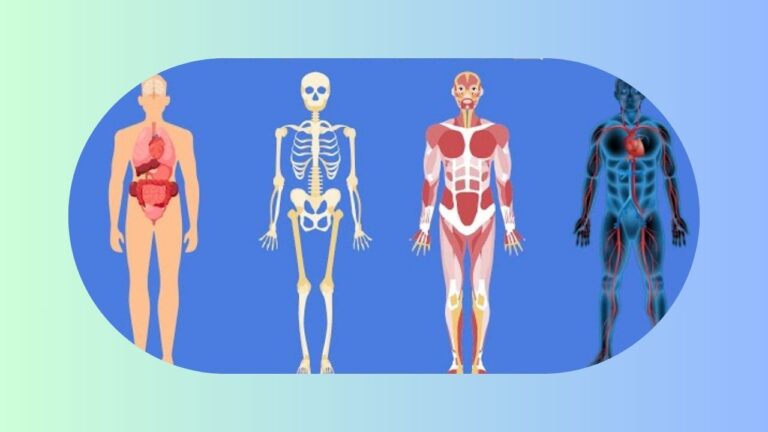
Vanshika
Bariatric Dietician & Content Writer
How Obesity Impacts in Human Body Systems

Obesity is a medical condition characterized by excessive body fat that can lead to negative health outcomes. It is typically diagnosed based on an individual’s body mass index (BMI), which is a calculation based on height and weight. A BMI of 30 or higher is considered to be obese.
There are a number of factors that can contribute to the development of obesity, including genetics, diet, and lifestyle factors such as physical activity levels. It can have a significant impact on various organs and systems in the body
Different body systems affected by obesity are:
Cardiovascular system:
Obesity increases the risk of developing cardiovascular diseases such as high blood pressure, coronary artery disease, heart attack, and stroke.
Excess fat tissue in the body causes an increase in blood pressure and cholesterol levels, leading to the accumulation of plaque in the arteries, which can lead to heart disease and stroke.
Obesity also causes an increase in the workload on the heart, which can cause the heart muscle to weaken over time and lead to heart failure.
Respiratory system:
Obesity can also affect the respiratory system, causing breathing difficulties such as shortness of breath, asthma, and sleep apnea.
Excess weight in the chest and abdomen can put pressure on the lungs and airways, making it difficult for individuals to breathe properly.
Sleep apnea is a condition where an individual’s breathing is repeatedly interrupted during sleep, leading to poor sleep quality and daytime fatigue.
Digestive system:
Obesity can also impact the digestive system, leading to conditions such as gastroesophageal reflux disease (GERD), fatty liver disease, gallbladder disease, and colon cancer.
GERD is a condition where stomach acid flows back into the esophagus, causing heartburn and other symptoms. Fatty liver disease occurs when there is an excessive accumulation of fat in the liver, which can lead to liver inflammation and scarring.
Gallbladder disease is also more common in obese individuals, as excess weight can increase the risk of developing gallstones.
Endocrine system:
The endocrine system is responsible for producing hormones that regulate metabolism, growth, and other bodily functions. Obesity can disrupt the normal functioning of the endocrine system, which can lead to insulin resistance, type 2 diabetes, and hormonal imbalances.
Insulin resistance occurs when the body becomes resistant to the effects of insulin, leading to high blood sugar levels and an increased risk of developing type 2 diabetes.
Hormonal imbalances can also occur in obese individuals, leading to problems such as irregular menstrual cycles in women and low testosterone levels in men.
Musculoskeletal system:
Excess weight can put extra pressure on the joints, leading to osteoarthritis and other joint problems. Obesity can also lead to muscle weakness and reduced mobility, as excess fat tissue can make it more difficult for individuals to move around and exercise.
Immune system:
Obesity can lead to chronic inflammation, which can impair immune system function and increase the risk of infections. Chronic inflammation is a state of low-grade inflammation that persists over time and can contribute to the development of numerous chronic conditions, including heart disease, diabetes, and certain types of cancer.
Nervous system:
Obesity can have a number of negative effects on the brain, both in terms of its structure and function. Reduced brain volume due to a reduction in blood flow to the brain or the accumulation of toxins in fat cells. Studies have found that obesity is associated with poorer cognitive function, particularly in the areas of memory, attention, and executive function.
This may be due to changes in brain structure or the effects of inflammation and insulin resistance.
Depression and anxiety: Obesity has also been linked to an increased risk of depression and anxiety, which may be due to changes in brain chemistry and function.
Overall, it’s clear that obesity can have a negative impact on the brain, both in terms of its structure and function. Maintaining a healthy weight through diet and exercise may help to mitigate these effects and reduce the risk of cognitive decline and other negative outcomes.






